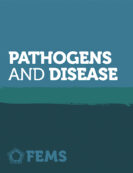Norwegian Society for Microbiology (NO-NFM)
The main purpose of the NFM is to promote microbiology research in Norway. To this end, we organize meetings, distribute microbiology-related information to our members, and sponsor seminars and conference attendance related to microbiology topics.
Membership
Membership location: national
Membership scope: Members working in all fields related to microbiology
| Membership type | fee (currency) | Notes |
| Full member | 200 (NOK) | Members should work in a field related to microbiology |
| Student member | 200 (NOK) |
Contact point: Membership Officer
Helga Ertesvåg
Treasurer
Contact point: Secretary
Alexander Tøsdal Tveit
Secretary
Contact point: President
Mark van der Giezen
Contact point: FEMS Delegate
Dirk Linke
Request additional contact details via fems@fems-microbiology.org
How to join
Please contact a member of the NFM board.
All but one of the FEMS journals are fully open access (OA), with one journal, FEMS Microbiology Letters, offering free-to-publish and OA options. Open access is key to supporting the FEMS mission of disseminating high quality research as widely as possible: when high quality, peer reviewed sound science is open access, anyone, anywhere in the world with an internet connection, can read it.







